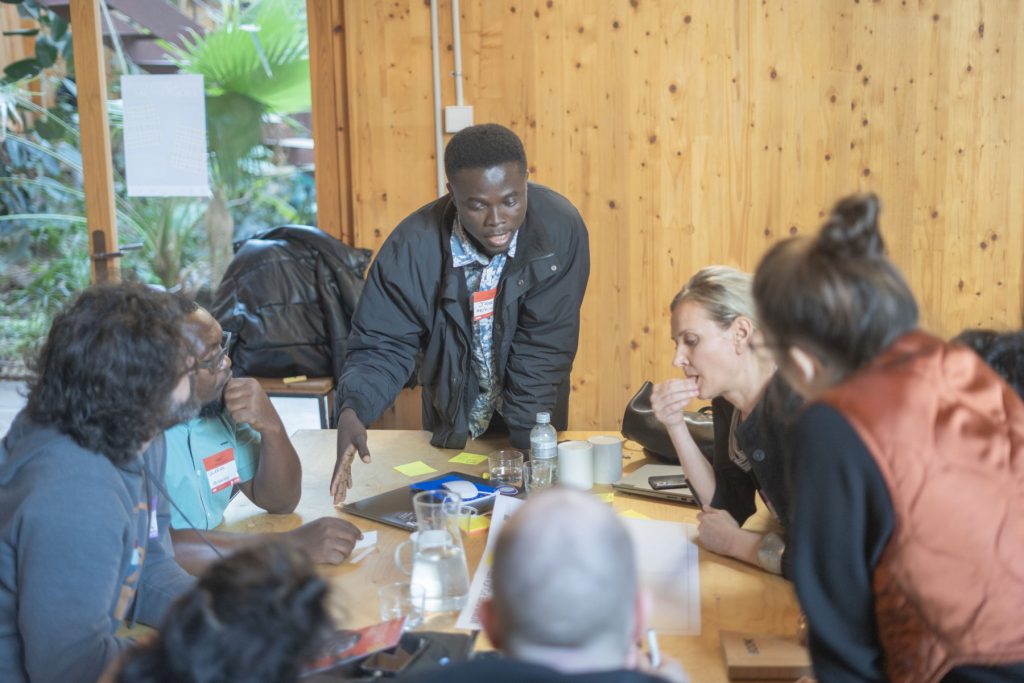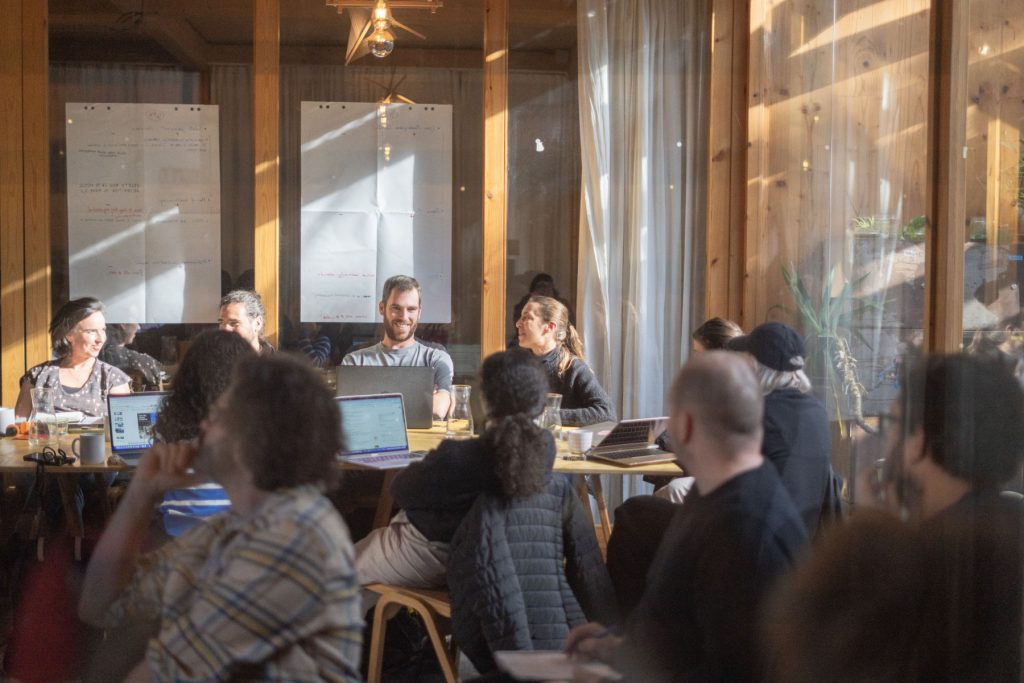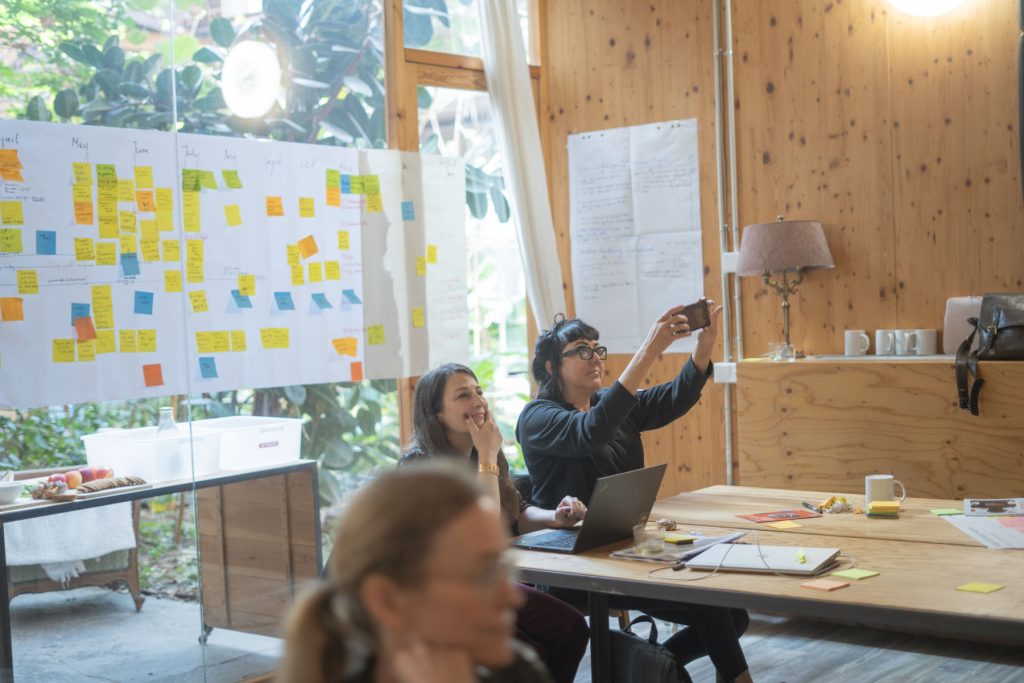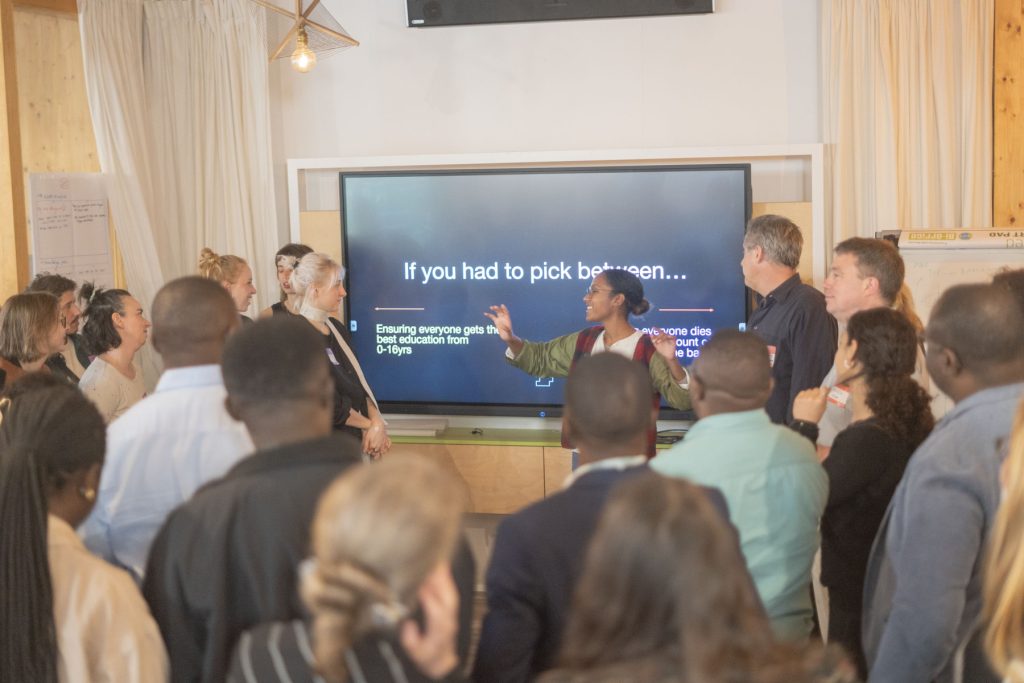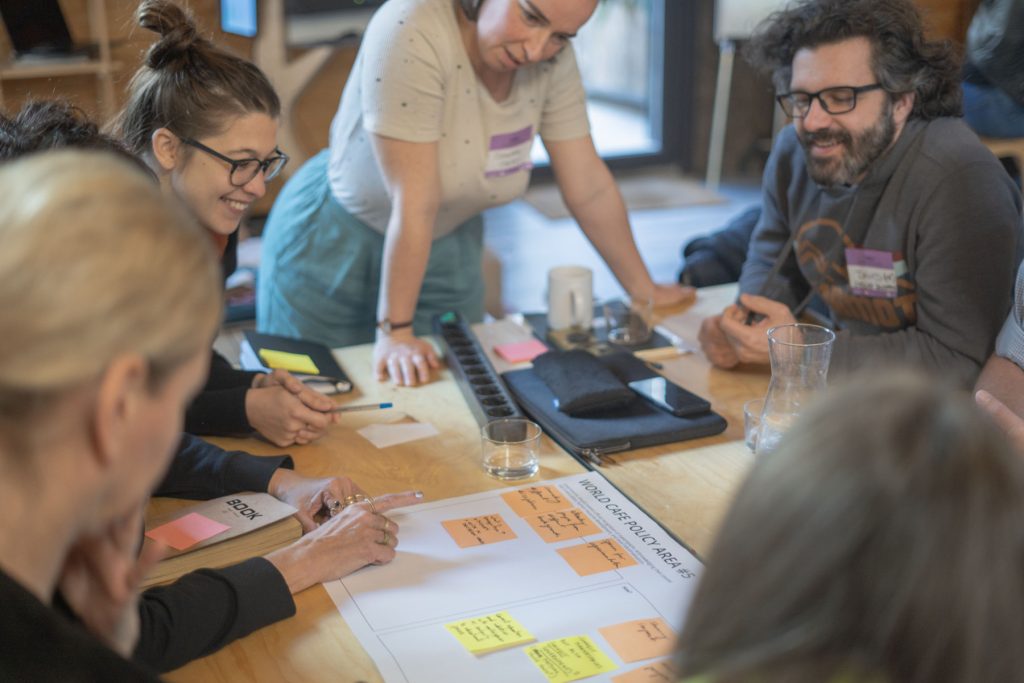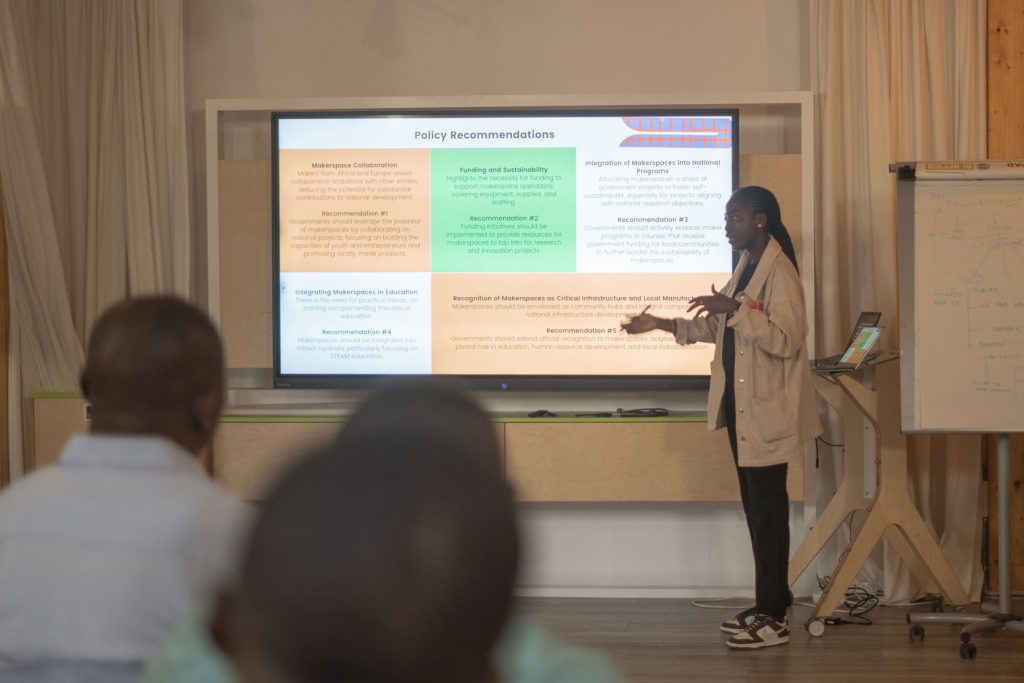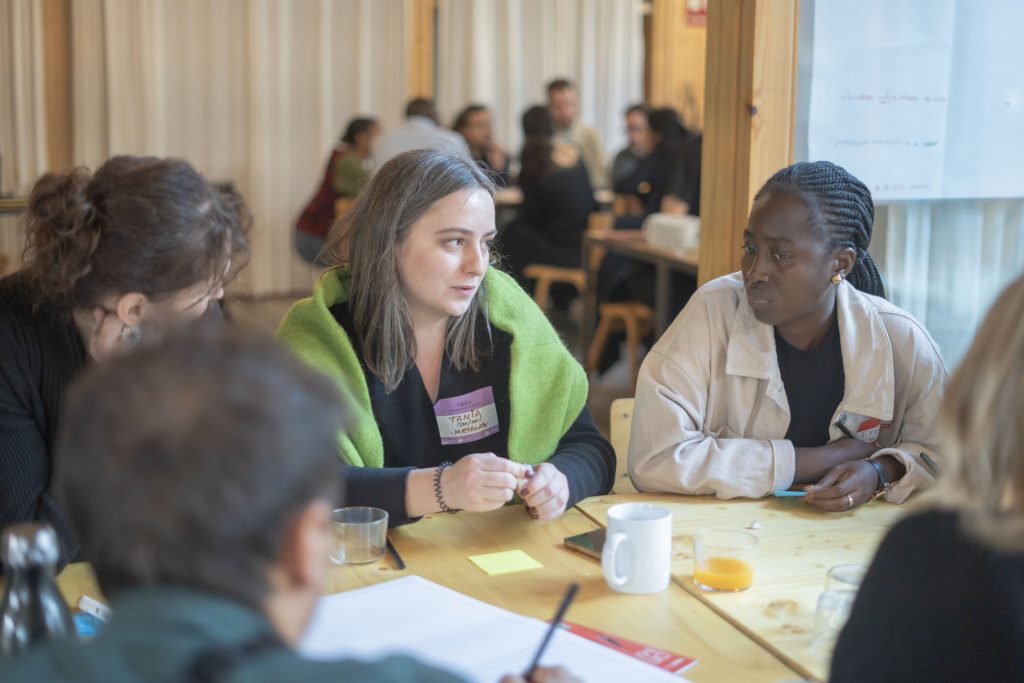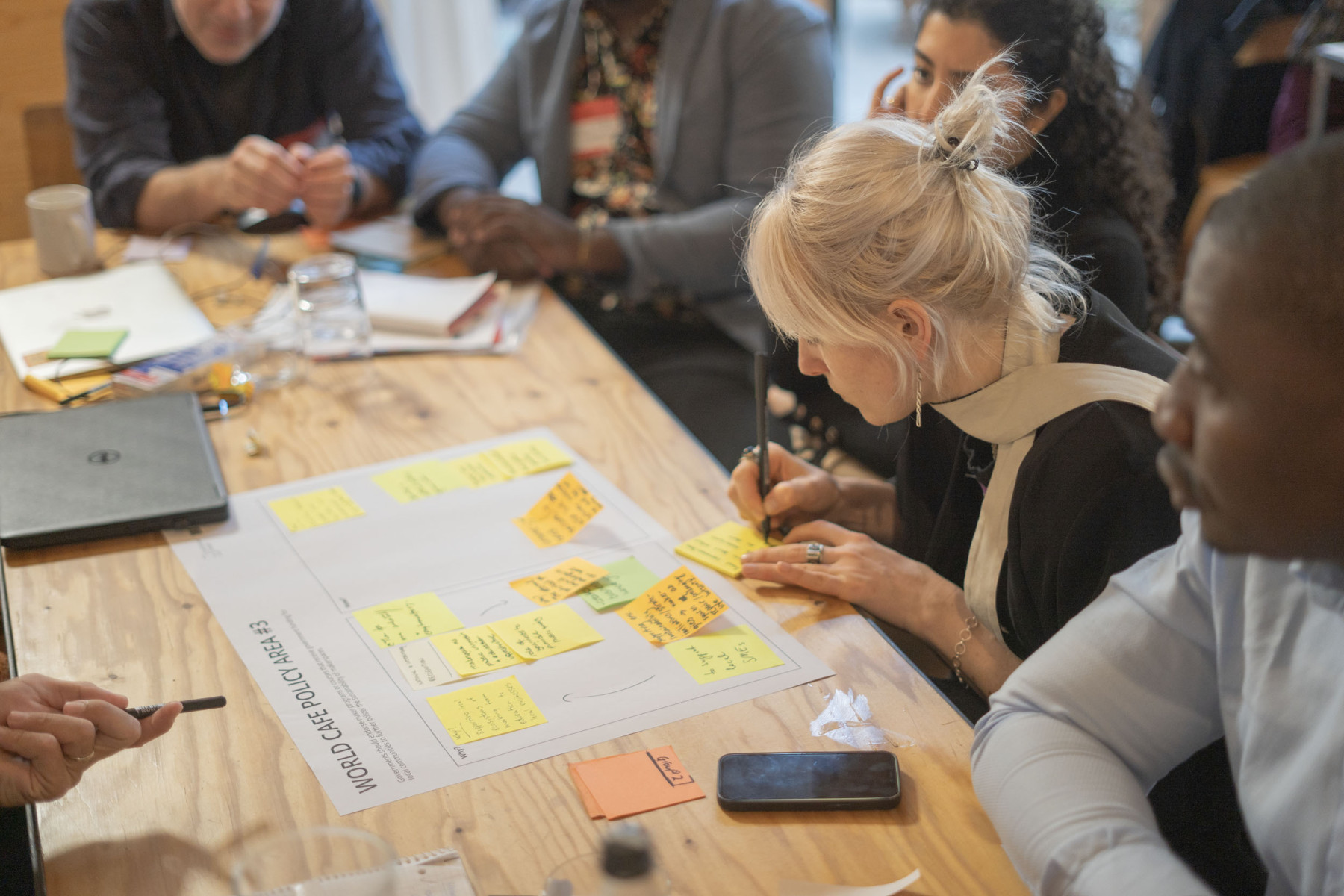
Strengthening the innovation ecosystem
Connecting the Fab Lab Barcelona-led EU projects Distributed Design and mAkE.
Two projects led by Fab Lab Barcelona, part of the Institute of Advanced Architecture of Catalonia, recently had their yearly general assemblies together in Barcelona. The networks of mAkE – African European Maker Innovation Ecosystem and the Distributed Design Platform brought their knowledge and connections to makerspaces, designers, cultural and creative institutions, innovators and start-ups in Africa, Europe, and beyond. This resulted not only in the exchange of practices from a variety of backgrounds but also in expanding the network of each of the participants.
What better place to bring these creative minds together than an old factory building that has recently been transformed into a space of communities working towards a more environmentally friendly future: Nest City Lab.
During the first two days, the two consortia were able to utilize a common space to gather, discuss, talk about visions, missions, activities to achieve, and hurdles to overcome. And of course, to share food and stories.
- The mAkE assembly’s objective was to connect in person with the project members, discuss the state of things and advance towards the key milestones and production of outputs of the project. It was a moment to reconnect, for knowledge sharing and alignment on the work to link European and African Digital Innovation Hubs to maximise their potential as spaces for digital innovation, skill building, job creation and contact points for global collaboration networks. This was a crucial moment, as the project has entered its third and final year where it will be delivering key resources on top of participating in upcoming international events, such as re:publica in June 2024.
- The Distributed Design Platform assembly’s objective was to create a moment of togetherness. It is once a year that the community of the platform, represented by its members and the coordinator of the platform, comes together to discuss the past year’s activities and experiences. Furthermore, this presented a moment for the members to bring their creative minds together to align for common activities, find opportunities to collaborate, and see how their work fits into the bigger picture of the Platform – and vice versa. As the last year of the Platform, under the current funding cycle approaches, this was an important moment to discuss what the key objectives of the community would be for 2024. With upcoming activities such as the Distributed Design Conference at the Vienna Design Week, there was no better moment to ideate and prototype ideas for the conference.
The Policy Workshop
On the last day, the two consortia combined their creative forces in a common workshop. Its objective was, on one hand, to explore the potential of the African and European maker, design, and innovation spaces. And on the other hand, to utilize this knowledge and experience to be able to transform them into recommendations that can shape policies. But how can one translate the amazing ideas, opportunities, and challenges that need to be overcome and have the potential to be solved by wisely placed policies on regional and national levels? This was the work of the Fab City Foundation through Freda Yamorti Gbande in the framework of mAkE, and policy designer, strategist, decolonial futurist Nyangala Zolho.
In the mAkE project, months of participatory research have led to 6 policy agenda items. Six areas in which policy can enable a shift that will lead the innovation ecosystem to thrive. However, now these agenda items need to be brought to the policymakers. And this is where Nyangala came in. Nyangala specializes in policy learning environments. During her workshop in collaboration with the Distributed Design Platform for both of the consortia, she guided the participants through the practical steps on how to translate what needs to be done to the people who need to hear it, in an accessible way. Making each participant a policy shaper. Through a step-by-step manner, she guided the participants from the inputs of the mAkE Policy agenda, presented by Freda, to understanding policy (makers) in general, knowing the audience (type of policymakers), knowing the right language to use, and how what needs to be done can get phrased practically and directly to those policymakers. The outcomes of the workshop were captured in a multimedia manifesto, inviting the participants to practice their newly gained skills; they presented their policy proposals in front of the whole group. Captured by the team at Fab Lab Barcelona, this multimedia maker manifesto will be released in July 2024.
A sneak peek of the insights gathered are: the right to repair act, recognition of maker spaces as educational spaces, integration of makerspace approaches into curricula, and that every child should have access to maker education.
- Strengthening the Right to Repair: The Right to Repair movement advocates for legislation that ensures consumers have the ability to repair their own products, rather than being forced to rely on manufacturers for repairs or replacements. This aims to make repair manuals, diagnostic tools, and spare parts readily available to consumers and independent repair shops.
- Recognition of Maker Spaces as Educational Spaces: Maker spaces are collaborative workspaces where people gather to share resources, knowledge, and skills to create, invent, and learn. Recognizing maker spaces as educational spaces involves acknowledging their role in fostering creativity, innovation, and hands-on learning experiences.
- Integration of Maker Space Approaches into Curricula: Integrating maker space approaches into curricula involves incorporating principles of creativity, problem-solving, and hands-on experimentation into educational programs at all levels. This can include project-based learning, design thinking, STEAM (Science, Technology, Engineering, Arts, and Mathematics) education, and experiential learning activities that encourage students to explore, tinker, and create.
- Ensuring Access to Maker Education for Every Child: Maker education emphasizes the importance of learning through making, tinkering, and experimentation. Ensuring access to maker education for every child involves providing equitable opportunities for hands-on learning experiences, regardless of socioeconomic background, geographic location, or educational setting. This can include expanding access to maker spaces in schools, libraries, and community centers, providing professional development for educators on integrating maker education into their teaching practices, and advocating for policies that prioritize equity and inclusion in STEM and STEAM education initiatives.
About the Distributed Design Platform
The Distributed Design Platform brings together a diverse member base from cultural and creative institutions, makers, designers, and craftspeople from around Europe coordinated by Fab Lab Barcelona at IAAC. With a focus on distributed design principles, the Platform serves as a hub for collaboration, knowledge exchange, and skill development by providing Europe-wide programming. By leveraging digital technologies and fostering interdisciplinary connections, the Platform empowers individuals and organizations to pivot the production and design paradigm towards more sustainable, open, inclusive, and collaborative practices. In March 2024, the Platform hosted the yearly general assembly together with the consortium of the EU-funded project mAkE Africa at Nest City Lab, Poblenou, Barcelona.
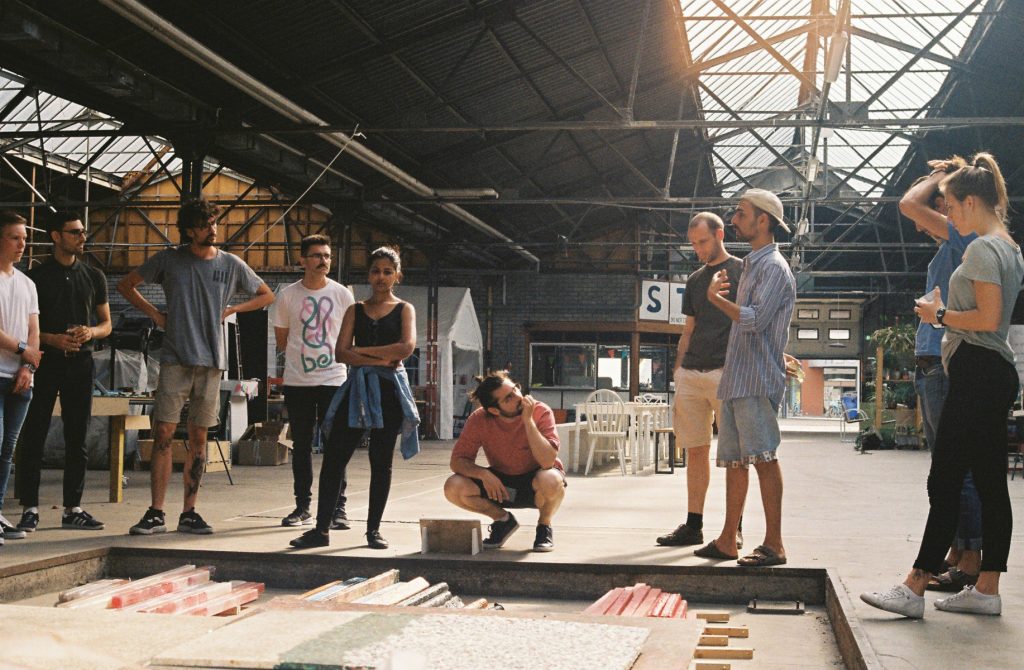
About mAkE
mAkE is a European H2020 project focusing on hardware-focused Digital Innovation Hubs (DIHs), including makerspaces, as key drivers for local digital innovation in Africa and Europe. mAkE seeks to grow the sustainability of, and collaborations between, African and European DIHs/makerspaces and the start-ups they host. The members deploy state-of-the-art co-creation, co-design, social innovation, and digital fabrication processes; and culturally- and gender-sensitive community and network engagement practices.
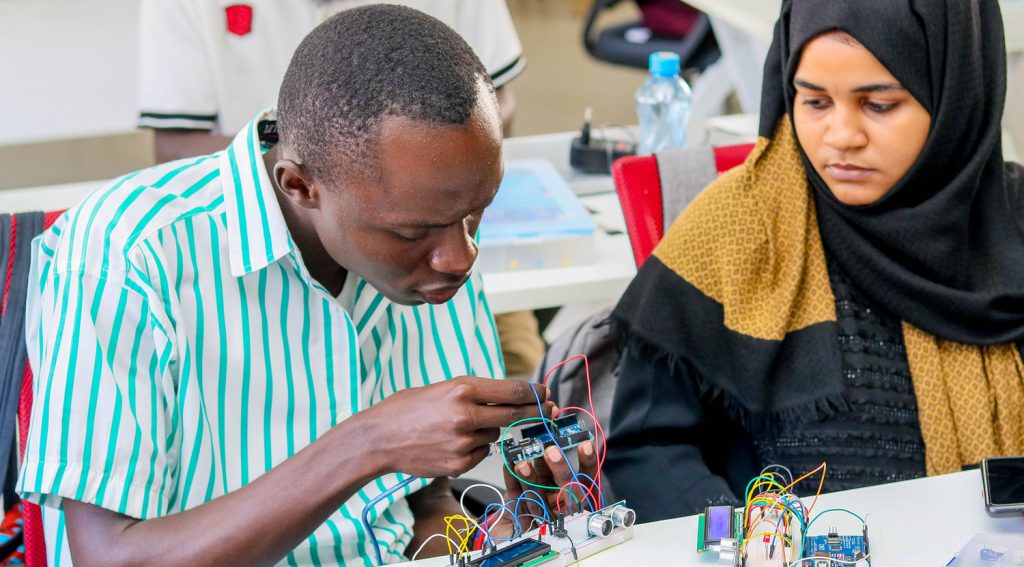
About Nest City Lab
Nest City Lab is a community and co-working space hosted in an old factory building, representative of the Poblenou neighborhood. Poblenou has a long history in manufacturing in Barcelona. The landscape of this neighborhood is a mixture of the old and the new, the preservation of industrial heritage, and gentrification.
Apocapoc Nest City Lab, as an Urban Lab, aims at promoting regenerative habits and sustainable practices. It facilitates a lifestyle that reduces our daily ecological footprint and encourages to have a positive impact on the world.
Get involved
- Subscribe to the mAkE newsletter and discover more about upcoming events
- Join the Distributed Design Platform at Vienna Design Week on 20-29 September 2024
